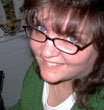Susanne Lakin
The Wolf of Tebron
Living Ink Books, 2010
FFF is proud to offer this interview with Susanne Lakin. Welcome Susanne! I'm honored to have you here. Everyone here has high hopes of publishing fantays novels.
(FFF) Can you tell us a little about yourself?
(SL)I’ve been writing a long time, ever since I can remember, but only in the last four years have I been writing intensively. I was raised by a mother who was a successful screenwriter for TV and so have been around writing all my life. I’ve been married to Lee for 27 years and we have two grown daughters. I love the outdoors and am pretty much a former hippy, so feel more comfortable sitting on the floor and sleeping in the woods!
(FFF) You write contemporary fiction and fantasy. Can you tell us what drew you to fantasy?
(SL) I’ve read fantasy and sci-fi all my life. My favorite books as a young teen were Ray Bradbury’s. I loved his creative mind and imaginative stories. I have read more fantasy than any other genre in my life.
(FFF) The Wolf of Tebron is described as a fairytale. It felt allegorical in nature when I read it. I enjoyed the adventure Joran experienced. I wondered as I read if it was really happening or if Joran's travels were more spiritual in nature.
(SL) Joran’s adventures were real (to him). His dreams were dreams, but it does cross over a bit when Joran has to enter his dream to rescue his wife.
(FFF) Can you tell us how you got started writing it?
(SL) This particular book was inspired by a favorite fairy tale of mine—The Enchanted Pig (Grimss). If you read that tale, you will see a lot of parallels. In it, the wife has to go to the four ends of the world to find her husband. I take elements from traditional fairy tales and tweak them into new stories that are deeper and richer. That’s at least where the basic plot came from. As far as how I got started writing fairy tales, that was a divine assignment, given quite clearly when I read Chesterton’s Ortodoxy and his chapter on “The Ethics of Elfland.”
(FFF) Did you get the characters or the plot first?
(SL) In this case, the plot came first. And I wanted to use an animal to depict God’s faithful love—which could be no other than something in the dog family. A wolf seemed perfect, like Aslan, not tame, but strong and fearless. However, I want to show God has humor and affection as well, so you’ll see that in the book.
(FFF) How do you feel about Christian fantasy authors using magic or dark arts in a novel?
(SL) All Christian fantasy writers cross into these avenues in some way. Some people are offended by that, but as long as the usage and intent behind the imagery is in line with Scripture and its values, to me there’s no problem. I take issue with books like Harry Potter in some ways as they veer readers away from God and his sovereignty and holiness, encouraging magic that leads to self-reliance and self-praise rather than leading to God. That’s not to say every fantasy book should blatantly point to God, but there is a danger in giving the message that dabbling in black arts is perfectly safe and fine from God’s point of view. Using dragons (which is common in Chrsitina fantasy) could be considered wrong, since the only dragon mentioned in the Bible is God’s worst enemy, yet when a dragon is used as a way to lead to biblical truth, it’s not a problem.
(FFF) How do you separate your fantasy ideas from your contemporary ideas?
(SL) I just do. When I’m writing a contemporary novel, I just switch brains. :)
(FFF) Many of the followers of Fairies, Fantasy and Faith are beginning writers. What advice can you give us on writing inspirational fantasy?
(SL) Read a lot of great books. My favorite author for fantasy is Patricia A. McKillip. I aspire to write as well as she does but it’s like a receding mirage that keeps moving farther away the closer I get. Don’t necessarily try to write exactly like them, but study whyand what you love about their writing and stoies, and then pray and trust God to lead you to write what he wants you to write. I am always a bit surprised when these stories formulate in my mind and heart with deep important issues and messages in them.
(FFF) Any other thoughts?
(SL) We need lots of fantasy authors out there writing great books. Fantasy is the best way to reach minds and hearts, and the top best-selling novels in history have been fantasy novels. Don’t let anyone pooh-pooh you for writing in that genre. We all know that it’s the best!
(FFF) Thanks again for being here! We are all excited to know Christian publishing is more and more open to fantasy novels. I believe great truths can be told in stories, and especially fantasy. May God continue to bless your writing. I'm looking forward to the next book in the series!
(SL) Thanks so much!
You can learn more about Susanne and The Wolf of Tebron at http://www.gatesofheavenseries.com/






